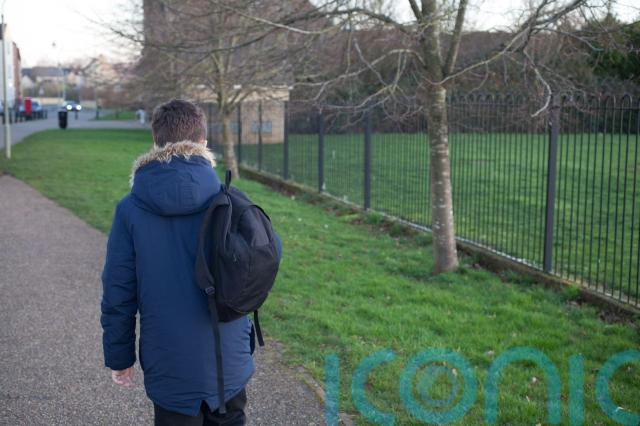
Pupils from well-off backgrounds are more than 40% more likely to get a place at top secondary schools, a study has found.
Findings from research by the University of Bristol show around one in five (18%) pupils eligible for free school meals were enrolled at a highly effective school, compared to around a quarter (25%) of their peers from more affluent backgrounds.
Schools’ geographic admissions criteria are “effectively ruling out certain pupils” the study’s lead author said.
Researchers found the vast majority (88%) of secondary schools used geographical location such as catchment areas and distance from home to school to decide where pupils are admitted.
Lead author Simon Burgess, professor of economics at the University of Bristol, said: “Most pupils in England live near enough to an effective school to be able to commute there. But our unique data clearly shows how schools’ geographic admissions criteria are effectively ruling out certain pupils.
“The process is not random – pupils living in poorer neighbourhoods lose access to the most effective schools, while pupils in richer areas are hugely favoured.”
The study, funded by the Nuffield Foundation, analysed 2019 data from more than 550,000 pupils and around 3,250 schools. It measured school effectiveness using the Progress 8 measure, which looks at the average progress pupils make from the end of primary school to their GCSEs.
The researchers said that giving priority to a set proportion of pupils eligible for free school meals would be the best way to reduce inequality while not causing widespread disruption to school allocations.
If pupils from poorer backgrounds have priority in admissions for up to 15% of places in each school, this would increase the average effectiveness of the schools they attend by 16%. With this change, 94% of pupils would still be assigned the same school, researchers said.

“In a nutshell, desirable schools generate substantial house price premiums in their catchment areas, so this admissions criteria disproportionately penalises pupils from poorer households,” Professor Burgess said.
The gap in effectiveness between schools a pupil can commute to and ones they actually get an offer from is more than twice as large in the poorest neighbourhoods, he added.
Pepe Di’Iasio, general secretary of the Association of School and College Leaders, said schools serving disadvantaged communities work hard to support their pupils.
“However, it is true that property prices create a social divide in many ways and this includes choice of school as this will normally be the school nearest to families,” he added.
“There is a strong argument for investigating how we could better bridge that divide by ensuring a more representative balance in schools and we support the idea of reviewing the school admissions code to consider prioritising places for disadvantaged children. However, this is not straightforward as there are obvious implications for the resulting length of journeys to and from schools.”
Similarly, Paul Whiteman, general secretary of the NAHT school leaders’ union, said the Government must focus on addressing the underlying causes of disadvantage that lie beyond the reach of schools.
“Any criteria for admissions that, either directly or indirectly, perpetuate some type of selection process that disadvantages certain groups of pupils should be removed to ensure it is a level playing field for families,” he added.
A Department for Education spokesperson said: “Through the landmark Children’s Wellbeing and Schools Bill, we will require councils and schools to work together on admissions to make sure every family has access to a good local school.”
Subscribe or register today to discover more from DonegalLive.ie
Buy the e-paper of the Donegal Democrat, Donegal People's Press, Donegal Post and Inish Times here for instant access to Donegal's premier news titles.
Keep up with the latest news from Donegal with our daily newsletter featuring the most important stories of the day delivered to your inbox every evening at 5pm.